'You have to offer something different' Cork's corner shops still vital to communities they serve
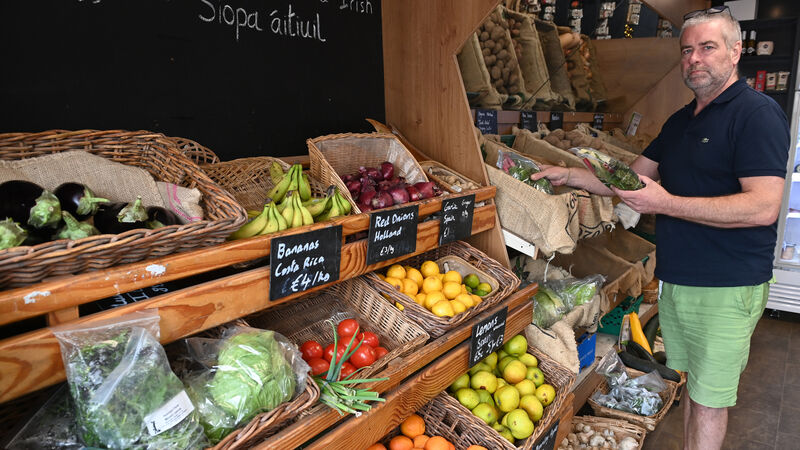
John Kelly, proprietor of Menloe Stores, Grocery-Newsagent with fresh fruit and vegetables in the family run store on Blackrock Road, Cork. Picture: Larry Cummins ECHO request
ACCORDING to recent figures released by the Convenience Stores and Newsagents Association (CSNA) — the largest independent body of convenience store retailers and newsagents in Ireland — up to 100 corner or local shops across the country are closing annually.
The CSNA also states that the future of small, mostly family-owned shops around the country is a concern for many people and particularly those who live in rural Ireland.
A recent report by the consulting firm EY found that although corner shops do indeed face challenges, there are also significant opportunities for corner shops to adapt and thrive into the future.
The same EY report outlined that through embracing technology, focusing on community, and evolving their offerings, corner shops can remain a crucial part of the community and serve as a valuable local business.
One example of a corner shop in Cork that has reimagined the way in which it operates the business is Menloe Stores in Blackrock.
Speaking to The Echo, John Kelly, the owner of Menloe Stores, outlines what they are doing to remain alive and well in the sector.
“You have to offer the customer something different. That is where we diversify to organic, chemical-free and local producers.
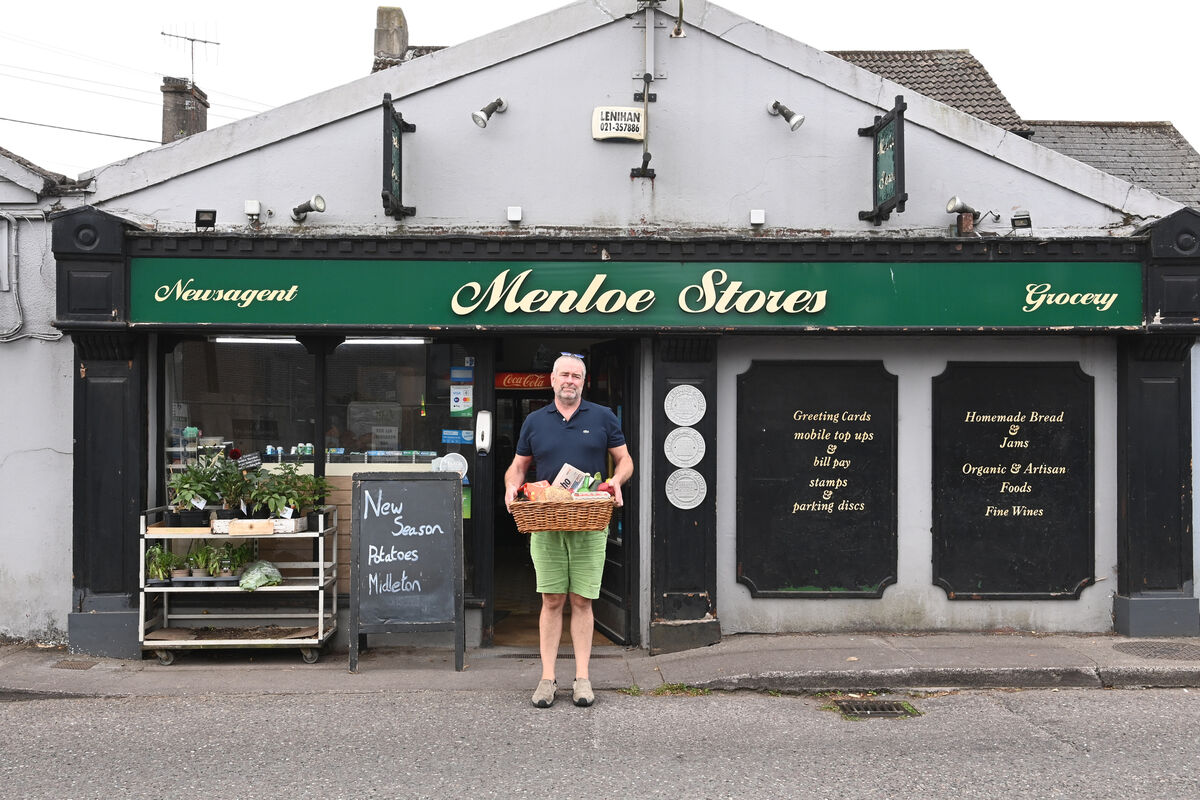
“It is like your farmers’ market, but we are open seven days a week. So, if you can’t make it to Mahon Point farmers’ market on a Thursday, come here and we will have a lot of the producers from the market.”
Mr Kelly added:
“We have become known for having stuff that the larger supermarkets wouldn’t have, local producers, small producers.
“We’re trying to put out our own niche, so we have something different to offer to the customer.
“You can’t compete with the supermarkets. Local handmade breads, local coffee roasters, local apple juice, organic and chemical-free veg from local farmers. We have diversified and it is going well so far.”
The rise of supermarkets and online shopping in general terms has had an impact on the corner shop.
One thing that Mr Kelly has noticed is that customers are looking at their spending, while they are coming to Menloe for something more specialised.
Mr Kelly added: “Decades ago, we were almost a mini supermarket. We stocked the same stuff and people that came in would buy a basket full of groceries.
“Now, they do their main shop in the supermarket. But if they want something like speciality coffee, some organic veg or locally-grown fruits, then they know to come to us for something different.”
Regarding the future of corner shops, Mr Kelly remains optimistic that there will always be a role to play for them in Ireland.
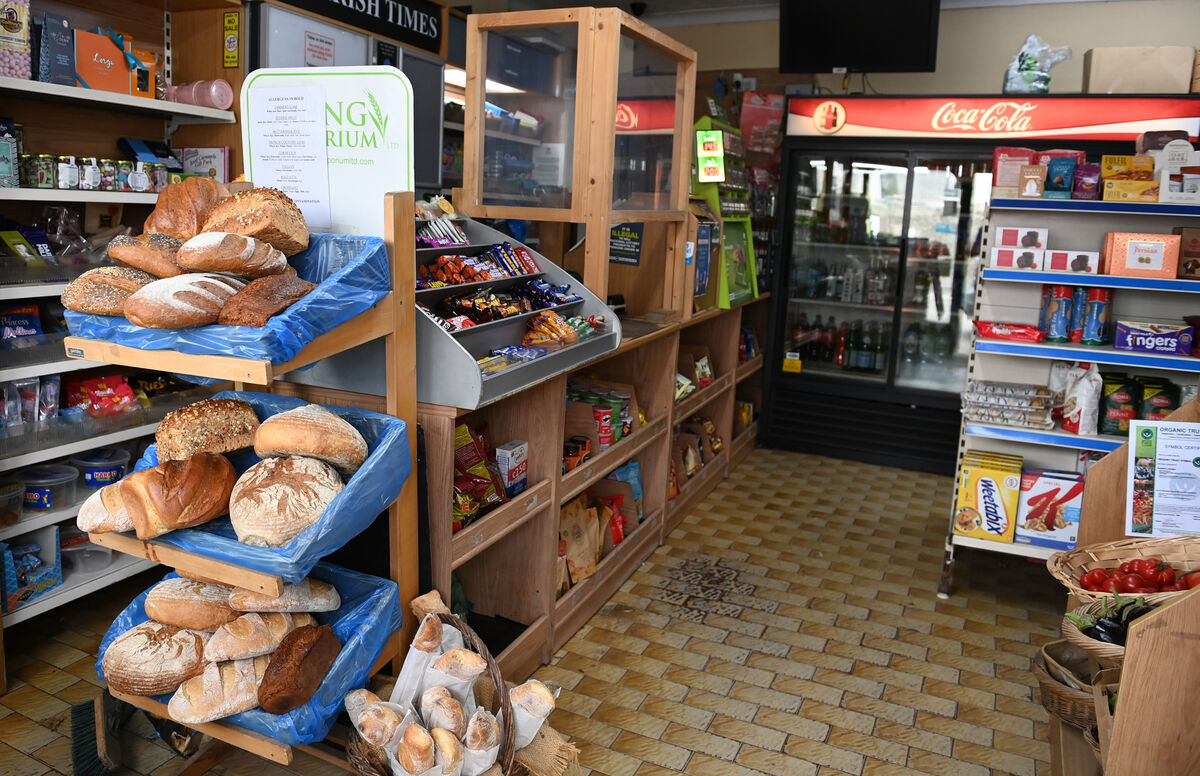
“There is always a role to play. We are open seven days a week. We are open a little bit later than supermarkets. We employ local kids, probably their first job.”
But he admits that it is “tougher” now. “There will be closures. But hopefully there will always be a place for local shops, if they can diversify and offer something different.”
So, what does Mr Kelly enjoy the most about working in, and owning, Menloe Stores?
“It’s the personal interaction with the customers and the personal interaction with the producers, small producers and farmers.
“I usually have to go to them and to find them. If I find a new product in the farmers’ market, I will talk to them, and they will talk me through their process and what they are doing.
“I am not big enough to dictate terms to them, so they will name their price, and they are happy with that price.
“I take that on, and I think everyone wins, direct from the producer and direct from the farmer, they are getting their fair share of what they expect to be paid.
Mr Kelly says he likes that part of it — the going out and actually meeting producers. “They talk me through their process and why they love it.”
Mr Kelly had the following message for the government with regards to the future of corner shops in Ireland:
“If you lose all of the corner shops, you are just going to be left with corporate supermarkets, who dictate the terms and dictate what the people eat and where they get it from.
“Smaller shops, and maybe the restaurants and the bars, we need more help from the government. “
Meanwhile, in the Cork Gaeltacht region, is Siopa Ó Luasa in Ballymakeera, a local corner shop which is very much a central community hub in the area.
The store includes a deli, hot food counter and home baking. The local post office is also on-site.
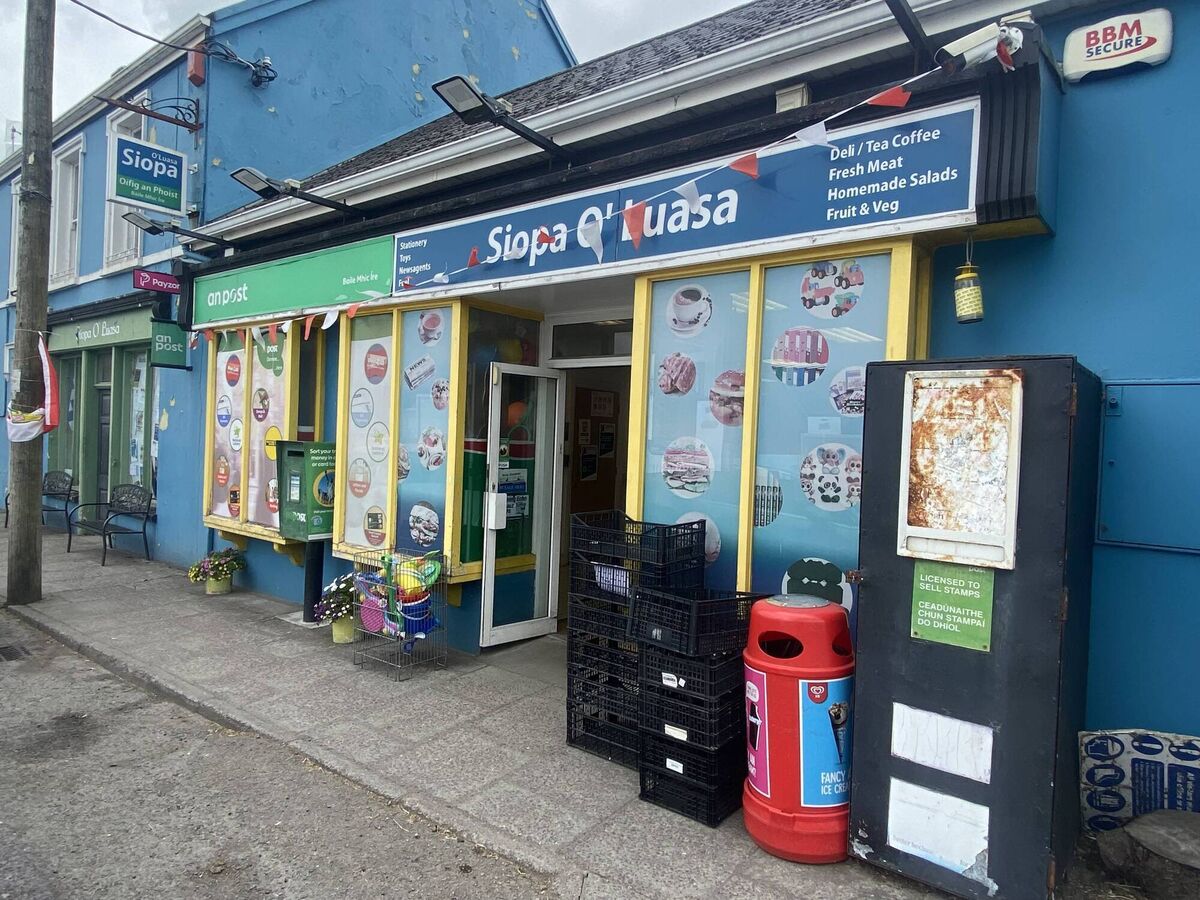
Speaking to The Echo, Siopa Ó Luasa shopowner Siobhan Uí Luasa illustrates how the service the shop provides goes beyond the simple act of a customer purchasing groceries.
Asked what she finds the most enjoyable aspect of her role, Ms Uí Luasa said:
“Meeting people, because this is a little village in the Gaeltacht and 80% of my customers will be locals. It is lovely to meet them all. I grew up in Ballymakeera village.”
She also loves the community aspect of the shop. “You kind of have to keep a lot of people up-to-date with what is happening around the parish. If there is a death, you need to have that information.
“If there is something going on in the village, like Gaelic football — like Naomh Abán playing on Sunday — you have to have a step-by-step account of what happened at the match for Monday!”
She says that because the shop is in the heart of the countryside, there are many customers who live alone.
“So, they love to come here, just for the social aspect and to meet people. The day of going to the pubs by night is gone. So their social aspect could be just coming to the shop. That is a service that we nearly provide just to chat to people. But it is a part of the job that I love.”
Regarding the future of the corner shop more generally, Ms Uí Luasa remains hopeful for what lies ahead.
“At times you wonder will the multiples take over. But I don’t think they will. Even if you go to England, you see all of the shops owned by Asian people and they are still going strong over there.
“A lot of them aren’t even in branded companies, and just going it on their own.
“If we didn’t have our two shops in Ballymakera, Macroom would be the nearest to us to the east, which is about nine miles away, Killarney is to the west of us and is about 20 miles away. We have a huge population in Ballyvourney now because with the new road, we have a lot of people who are buying houses here because it is convenient to Kerry and convenient to Cork.”
She adds: “The corner shop, I think, is alive and kicking... well in this part of the world anyway.”
SHOPPING IN PERSON
Despite the onset of online shopping, the EY report also found that 70–80% of Irish consumers still prefer shopping in person for essentials and, in particular, fresh food.
Ms Uí Luasa added:
“Since covid, we definitely see the Dunnes Stores and Tesco vans around a lot more. But again, I think there is always going to be a need for the local shop, even if it is just to get fresh milk.
“If you get your delivery from the Tescos or the Dunnes once a week, you are still going to have to get your fresh milk and your fresh bread. Because we still have the traditional cut ham above in the deli, people still like to come in and get their few slices of ham.
“So I am in the lucky position that I didn’t have to change. What I have works, has worked and hopefully will work going into the future.”
In Cork city centre, Happy Days Deli on Leitrim Street is owned and run by Mazhar Hasan, who says that locals are their primary market.
Mr Hasan said: “The thing is that when people want something, they won’t go to the big places. At some part of the day the supermarkets are very busy. So, to avoid the queue and save time, they come to us to get it. It is just myself and my wife working in the shop, so we are surviving at the moment.”
When asked did Happy Days have to change the way they do business with the onset of online shopping, Mr Hasan added:
“We thought about that. But the only thing is that we do not have that wide a range. We have very small and very local stuff. I have people coming in who are living throughout the neighbourhood. So, I am just selling for them and that is enough for us to do it.”
He says he keeps the stock levels tight.
“I keep it very particular things, so people can come in, take it and move on.
“I have a good neighbourhood and they support me for any reason, through all the hardest time that was here they supported me. That is why I am here. Otherwise, I was history.”
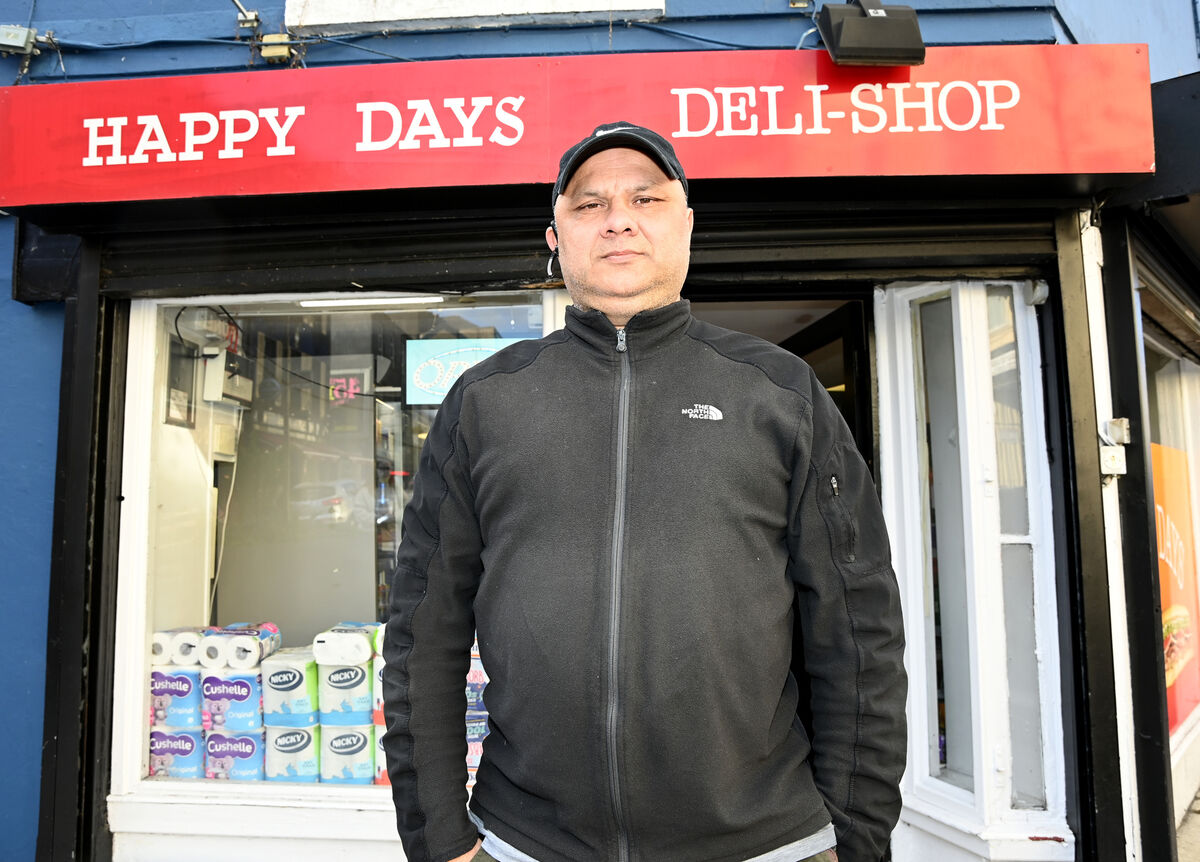
When asked what he thinks the future looks like, Mr Hasan said he feels it is a testing time for industry, especially in the city centre.
“Things are getting very expensive. So, I think you are losing some customers of some part of the day because of course people have to save money.
“Things are getting very tight for small businesses. Many small places are wiped out. What I am thinking is in the next couple of years is just the big shops will be left, and all the small fishes will be wiped out to be honest.“
Mr Hasan continued: “I am seriously thinking to close the business to go back to work. Things are getting very tight now. I am hanging on because it is just me and my wife working here. I am not paying anyone wages.”
He said if he was to pay another wage packet, he fears he would be “history” as he is now working seven days a week to run the business.
Regardless of the challenges and opportunities which currently exist in the industry, people working in the corner shop sector are hoping that the local shop can continue to play a crucial role in Irish society over the coming years ahead.

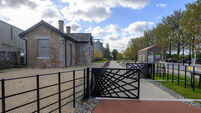

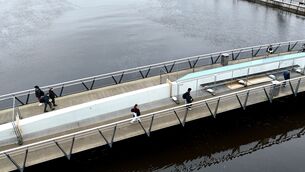



 App?
App?


